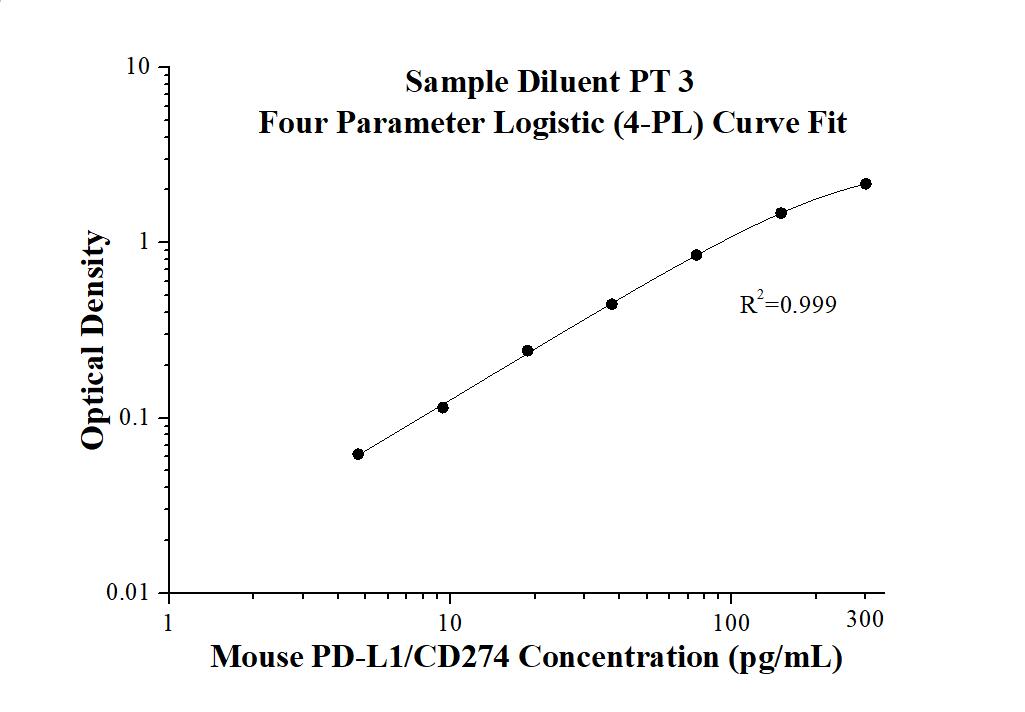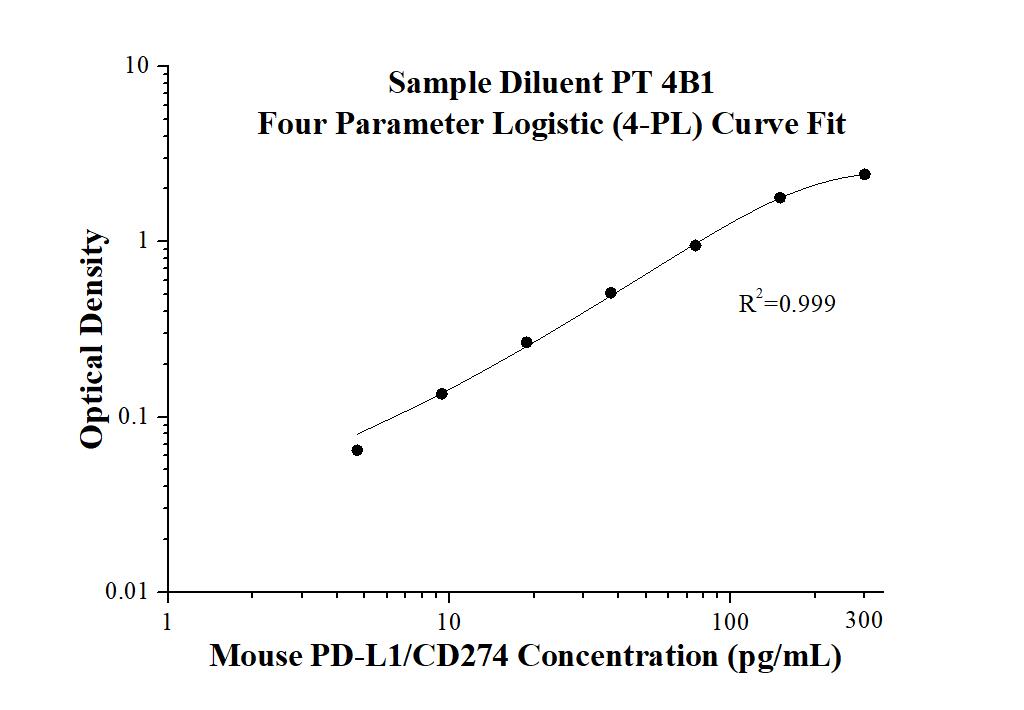Mouse PD-L1/CD274 ELISA Kit
Sensitivity
0.3 pg/mL
Range
4.7-300 pg/mL
Reactivity
Mouse
Cat no : KE10139
Synonyms
Cd274,PD-L1,B7 H1,PD L1,Pdcd1l1
Validation Data Gallery
Product Information
KE10139 is a solid phase sandwich Enzyme Linked-Immuno-Sorbent Assay (Sandwich ELISA). The human PD-L1/CD274 ELISA kit is to be used to detect and quantify protein levels of endogenous human PD-L1/CD274. The assay recognizes human PD-L1/CD274. An antibody specific for human PD-L1/CD274 has been pre-coated onto the microwells. The human PD-L1/CD274 protein in samples is captured by the coated antibody after incubation. Following extensive washing, another horseradish peroxidase (HRP)-conjugated antibody specific for human PD-L1/CD274 is added to detect the captured human PD-L1/CD274 protein. For signal development, followed by Tetramethyl-benzidine (TMB) reagent. Solution containing sulfuric acid is used to stop color development and the color intensity which is proportional to the quantity of bound protein is measurable at 450 nm with the correction wavelength set at 630 nm.
| Product name | Mouse PD-L1/CD274 ELISA Kit |
| Tests | 1 X 96 well plate |
| Sample type | Serum, Plasma, Cell lysate |
| Assay type | Sandwich |
| Sensitivity | 0.3 pg/mL |
| Range | 4.7-300 pg/mL |
| Reactivity | Mouse |
| Tested applications | Sandwich ELISA |
| Gene ID (NCBI) | 60533 |
Recovery
| Sample Type | Average | Range |
|---|---|---|
| Mouse serum | 94% | 81%-110% |
| Cell lysate | 96% | 81%-106% |
IntraAssay
| Sample | n | mean ( pg/mL) | SD | CV% |
|---|---|---|---|---|
| 1 | 20 | 157.7 | 5.3 | 3.4 |
| 2 | 20 | 37.6 | 1.1 | 2.8 |
| 3 | 20 | 8.7 | 0.4 | 4.5 |
InterAssay
| Sample | n | mean ( pg/mL) | SD | CV% |
|---|---|---|---|---|
| 1 | 24 | 147.6 | 7.0 | 4.8 |
| 2 | 24 | 36.3 | 1.3 | 3.6 |
| 3 | 24 | 9.4 | 0.5 | 5.7 |
Background Information
PD-L1 (programmed cell death ligand 1, also known as CD274 or B7-H1) is a 290 aa type I transmembrane protein. PD-L1 is expressed constitutively on T cells, B cells, DCs, macrophages, mesenchymal stem cells and cultured bone marrow-derived mast cells. In addition, PD-L1 is also expressed on many nonhematopoietic cell types, including vascular endothelial cells, epithelial cells, muscle cells, hepatocytes, pancreatic islet cells, astrocytes in the brain, placental syncytiotrophoblasts, and cells in cornea, iris-ciliary body and retina of eye. PD-L1 is frequently upregulated in a wide variety of solid tumors, including melanoma, ovarian, lung, glioblastoma, breast, and pancreatic cancers. PD-L1 and PD-L2 are two ligands of PD-1. Engagement of PD-1 by PD-L1 or PD-L2 transduces a signal that inhibits T-cell proliferation, cytokine production, and cytolytic function. It is critical for the regulation of T cell function during tolerance, autoimmunity and infection. Besides the membrane-bound form, PD-L1 can also exist as a soluble form (sPD-L1) generated either by proteolytic cleavage of membrane-bound form or by translation of alternative spliced mRNA.
Properties
| Storage Instructions | All the reagents are stored at 2-8℃ for 6 months or -20℃ for 12 months. Refer to the protocol for further storage instructions. |
| Synonyms | Cd274,PD-L1,B7 H1,PD L1,Pdcd1l1 |


